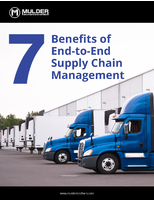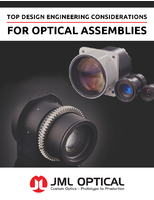Midrange Storage System has modular, adaptable architecture.
Press Release Summary:
Ensuring continuous access to data, LSI(TM) Engenio® 7900 Storage System offers multi-dimensional adaptability and delivers 6.4 GB/s on sustained reads from disk. Support for replication and management services addresses needs for application recovery, data migration, centralized management, and remote backup. Users can add or field-replace host interfaces, including 4 Gbps FC and 20 Gbps InfiniBand®, as well as grow capacity with linear scalability up to 256 FC or SATA drives.
Original Press Release:
LSI Delivers Highly Adaptable, High-Performance Midrange Storage System for the Data Center
Next-generation architecture designed for large-scale consolidation and multi- dimensional adaptability
DALLAS, Oct. 13 -- STORAGE NETWORKING WORLD -- LSI Corporation (NYSE:LSI) today announced the LSI(TM) Engenio(R) 7900 Storage System, the newest member of the Engenio line of modular storage systems. The 7900 system provides midrange customers with industry-leading performance, and the scalability, adaptability and availability features they need to support large-scale consolidation projects and ever-changing requirements.
Addressing customer needs for rapid application recovery, data migration, centralized management and affordable remote backup, the new system also supports advanced replication and management services, including thin provisioning, based on fifth-generation LSI StoreAge(TM) SVM(TM) (Storage Virtualization Manager) software, also announced today.
"The new economics of storage require large-scale consolidation of data," said Phil Bullinger, executive vice president and general manager, Engenio Storage Group, LSI. "Effective consolidation isn't just an issue of bigger and faster. Storage systems must also offer users the ability to manage a wide variety of concurrent applications under unpredictable load conditions. The 7900 storage system delivers on these requirements by putting enterprise performance and features into the hands of midrange users."
Based on LSI seventh-generation XBB2 architecture, the new system provides industry-leading bandwidth to meet the real-world challenges of large-scale consolidation. The system delivers 6.4 GB/s on sustained reads from disk, a 4X performance improvement over the previous generation. It also provides the balanced performance and massive throughput necessary to support the concurrent, mixed application workloads typical of today's virtual server environments.
To demonstrate the 7900 system's mixed workload performance capabilities, LSI, in collaboration with Enterprise Strategy Group (ESG) Labs and industry leaders IBM and VMware, developed the industry's first concurrent mixed workload benchmark to be focused on storage performance.
"Our research shows that performance issues are the number one concern for users when deploying networked storage into a virtualized server environment," said Brian Garrett, technical director of the ESG Lab. "To address these concerns, ESG ran a mixed workload benchmark to assess the performance of the new system in precisely such a consolidated, virtualized server environment. The system achieved extremely impressive performance results for a dual controller modular storage system."
The benchmark demonstrated concurrent delivery of 1.6 GB/s of aggregate throughput and over 38,000 IOPS (input/output operations per second). Response times of less than 20 milliseconds for more than 17,000 e-mail users and less than five milliseconds for more than 9,000 small database IOPS were also achieved.
The system's highly efficient design also delivers green benefits by enabling users to meet performance Service Level Agreements with fewer components, reducing acquisition and energy costs, and improving space efficiency.
Seamless adaptability, scalability with continuous data access
The 7900 storage system features a modular design and multi-dimensional adaptability, which keeps initial cost low and allows customers to seamlessly adapt to evolving infrastructure, capacity and application requirements. Users can add or field-replace host interfaces, including 4 Gb/s Fibre Channel (FC) and 20 Gb/s InfiniBand(R), and grow capacity with linear scalability up to 256 FC or SATA drives at initial release. Subsequent releases will scale to 480 drives and support future technologies including 8 Gb/s FC, 10 Gb/s iSCSI and 40 Gb/s InfiniBand. The system's configuration flexibility and efficient storage utilization lower raw capacity requirements, while intermixed FC and SATA drive support enables tiered storage within a single system. The system will add support for solid state drives in the first half of 2009.
The new system is also designed to ensure continuous access to data with high reliability and availability features, including fully redundant, active- active I/O paths from host to drives with automated failover, cache mirroring and extensive online administration and maintenance capabilities. Stored data is protected with enhanced features such as proactive drive health monitoring, hardware-assisted RAID 6 and persistent cache backup.
The LSI Engenio 7900 is immediately available to OEM customers. More information on the new system is available in an online press kit at http://lsi.com/presskit.
About LSI
LSI Corporation (NYSE:LSI) is a leading provider of innovative silicon, systems and software technologies that enable products, which seamlessly bring people, information and digital content together. The company offers a broad portfolio of capabilities and services including custom and standard product ICs, adapters, systems and software that are trusted by the world's best known brands to power leading solutions in the Storage and Networking markets. More information is available at http://www.lsi.com/.
LSI, the LSI logo, Engenio, StoreAge and SVM are trademarks or registered trademarks of LSI Corporation or its subsidiaries.
IBM is a registered trademark of IBM Corporation. InfiniBand is a registered trademark of System I/O, Inc. VMware is a registered trademark or trademark of VMware, Inc. in the United States and/or other jurisdictions. All other brands or product names may be trademarks or registered trademarks of their respective companies.




